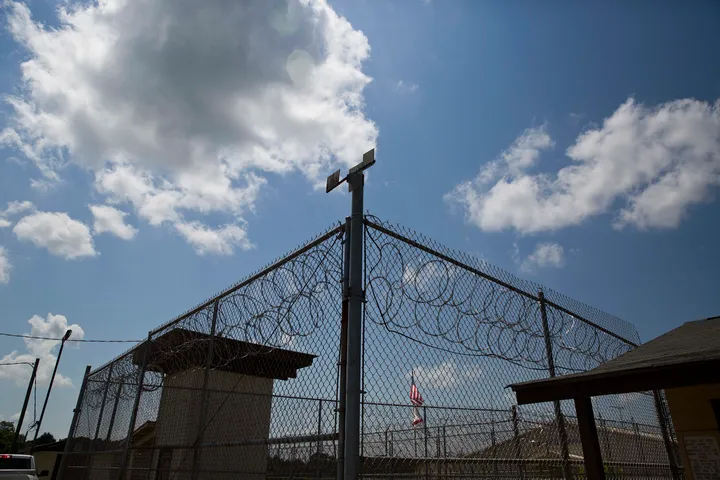Alabama Prisoners Sue State Over ‘Modern-Day Slavery’ Work Programs
Share
Explore Our Galleries
Breaking News!
Today's news and culture by Black and other reporters in the Black and mainstream media.
Ways to Support ABHM?
By Dave Jamieson and Jessica Schulberg, Huffington Post
The lawsuit alleges that fast food companies and local governments benefit from an illegal “labor trafficking scheme.”

(Associated Press)
Current and former prisoners in Alabama filed a lawsuit in federal court Tuesday arguing that the state’s prison labor system amounts to a “modern-day form of slavery” that violates the U.S. and Alabama constitutions.
The complaint, brought with the support of labor unions, alleges that Alabama profits to the tune of more than $450 million a year through coerced work, and that fast food companies and other private corporations benefit from an unlawful “labor trafficking scheme.”
[…]
The plaintiffs ― which include two labor groups, the Union of Southern Service Workers and the Retail, Wholesale and Department Store Union ― argue that the state’s parole system has disproportionately trapped Black prisoners in jobs working for little or no pay.
Prisoners detail the experiences that led them to this decision in the original article.
Learn about the origins of prison slavery.
Back to Breaking News.











Comments Are Welcome
Note: We moderate submissions in order to create a space for meaningful dialogue, a space where museum visitors – adults and youth –– can exchange informed, thoughtful, and relevant comments that add value to our exhibits.
Racial slurs, personal attacks, obscenity, profanity, and SHOUTING do not meet the above standard. Such comments are posted in the exhibit Hateful Speech. Commercial promotions, impersonations, and incoherent comments likewise fail to meet our goals, so will not be posted. Submissions longer than 120 words will be shortened.
See our full Comments Policy here.